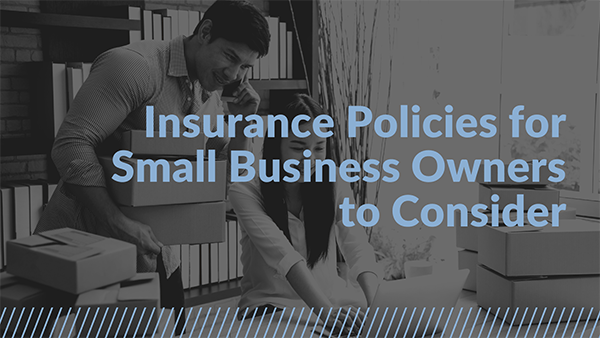BJ255 Insights
Exploring the latest trends and news in various fields.
Small Business Insurance: Don't Get Caught in the Coverage Trap
Avoid costly mistakes! Discover the essential tips to navigate small business insurance and escape the coverage trap. Your business deserves the best.
Understanding the Different Types of Small Business Insurance: What Coverage Do You Really Need?
Understanding the landscape of small business insurance is crucial for protecting your investment and ensuring stability. There are several types of small business insurance available, each designed to cover specific risks. Some of the most common types include:
- General Liability Insurance: Protects against claims for bodily injury and property damage.
- Property Insurance: Covers physical assets like buildings and equipment.
- Workers' Compensation Insurance: Offers benefits to employees who get injured on the job.
- Professional Liability Insurance: Shields against claims of negligence in professional services.
To delve deeper into these insurance types, you can visit the SBA's guide on obtaining business insurance.
Choosing the right coverage can be a complex process, as each business has unique needs. It is crucial to assess the specific risks your business faces and consult with an insurance expert to tailor your policy accordingly. Factors to consider include the size of your business, the industry, and legal requirements. Additionally, businesses should regularly review their insurance policies to ensure they continue to meet their evolving needs. For more information on evaluating your insurance requirements, check out Insureon’s resources on small business coverage.

Top 5 Common Misconceptions About Small Business Insurance
Small business insurance is often surrounded by myths that can lead to costly mistakes for entrepreneurs. One common misconception is that small business insurance is only necessary for larger firms. In reality, even solo entrepreneurs and freelancers can face significant risks that require coverage. According to the U.S. Small Business Administration, having the right insurance can protect your livelihood and assets, providing peace of mind in the event of unforeseen circumstances.
Another prevalent myth is that all insurance policies are the same, regardless of the type of business you run. This is far from the truth! Each industry has specific risks that need to be addressed through tailored insurance solutions. For example, a restaurant will have different coverage needs than a tech startup. It's crucial to work with an insurance expert to determine the most suitable coverage for your unique situation, as noted by NFIB.
Is Your Small Business at Risk? Signs You Might Need Additional Coverage
As a small business owner, it's crucial to assess whether your company is adequately protected against unforeseen challenges. There are several signs you might need additional coverage to safeguard your operations and assets. For instance, if your business has expanded recently and you're now managing more employees or inventory, it may be time to review your existing insurance policies. Increased exposure to risks, whether it's due to new equipment, more customers, or extensive property, could necessitate a higher level of coverage.
Another sign that your small business may be at risk is the emergence of changes in regulations or industry standards. Keeping informed about small business regulations is essential, as non-compliance can expose your business to legal and financial repercussions. Moreover, if your business relies heavily on technology or has undergone digital transformation, consider investing in cybersecurity insurance. Protecting sensitive data and mitigating the impact of potential breaches should be a top priority. Regularly reviewing your insurance needs can help ensure you're prepared for future uncertainties.